The average human has at least 2 kilograms of bacteria in their guts alone. In fact, the Human Microbiome Project have identified over 1000 different species of bacteria that live in the human large intestine, which is nearly equal to the species density of the Amazon rainforest. Mind blown yet?
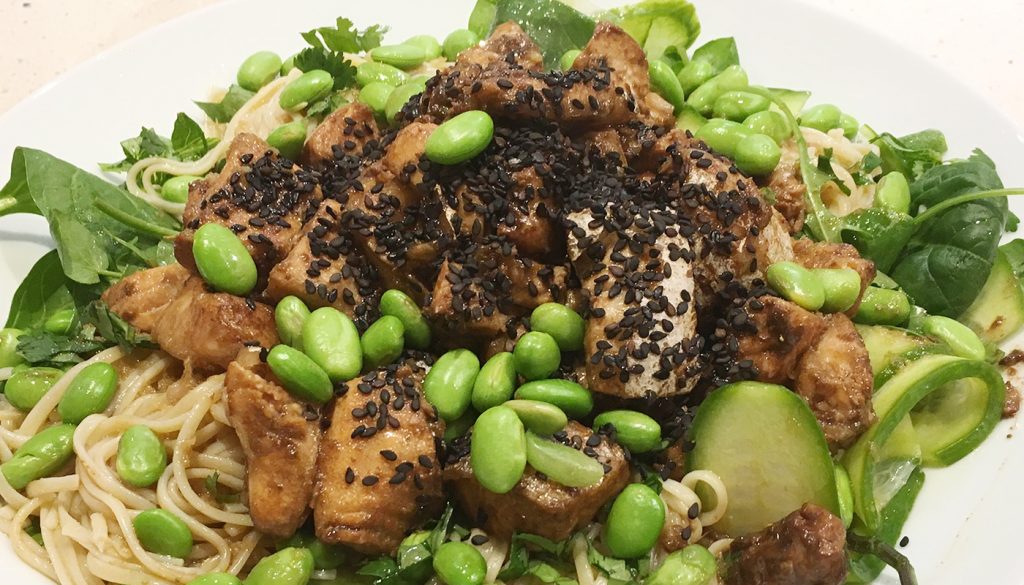
Marinated Salmon with Pickled Cucumber, Edamame and Rice Noodles
There is a vast ecosystem inside of our gut composed of viruses, bacteria and fungi, all of which constitute the human gut microbiome. Scientific research has found revolutionary evidence that maintaining a healthy balance of gut microbiome is the key to our health and wellbeing. In other words, when we care for our gut and nourish these microorganisms with the right food, our health flourishes. But when we feed these bacteria poorly (think fast food, sugar and a lack of vegetables) this ecosystem starts to dwindle and our health is compromised.
The Low FODMAP Diet
But how can I nourish my gut microbiome, I hear you ask? Well, this is where Toral Shah from The Urban Kitchen fits in. This week, I was invited along to Toral’s workshop, Understanding Low FODMAP and Improving Gut Health. In this fantastic workshop, we learned how to cook to nourish our digestive system, increase our energy levels, improve our immune response and potentially help with weight management. A Scientist and Chef with a BSc in Cell Biology and an MSc in Nutritional Medicine, Toral specialises in foods that prevent cancer as well as improving gut health, and runs different cookery workshops all year round. Stepping into Toral’s kitchen was an absolute dream for a foodie like me. I felt like a kid in a sweetshop peering at her spice shelf and all the weird and wonderful produce from around the world.
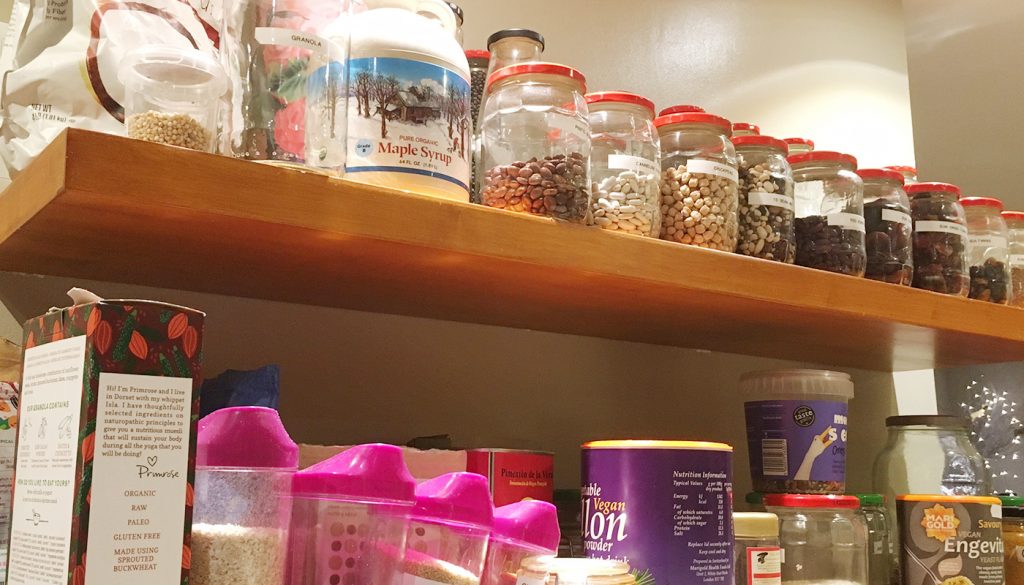
A foodie’s candy store!
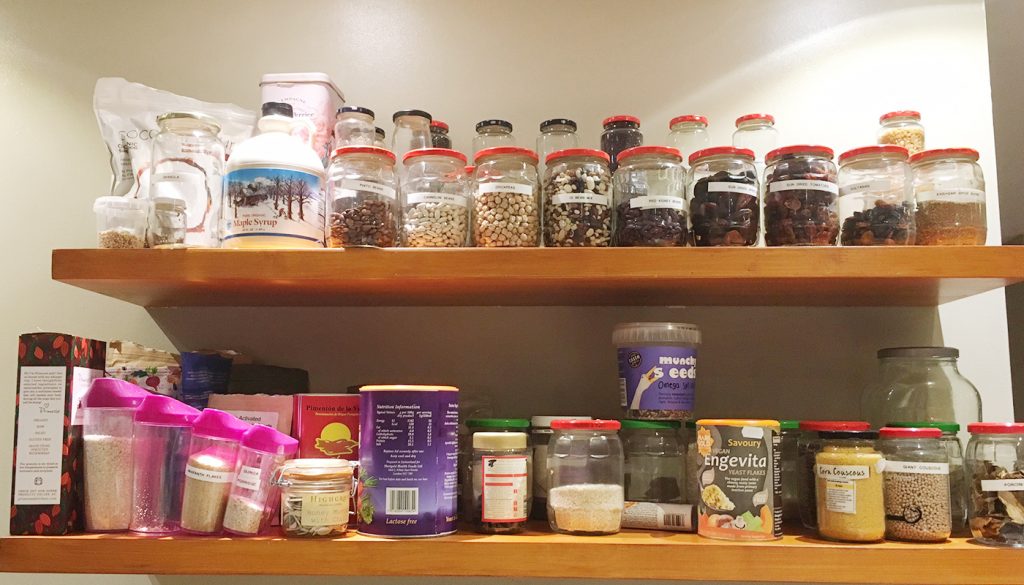
We want a kitchen like this!
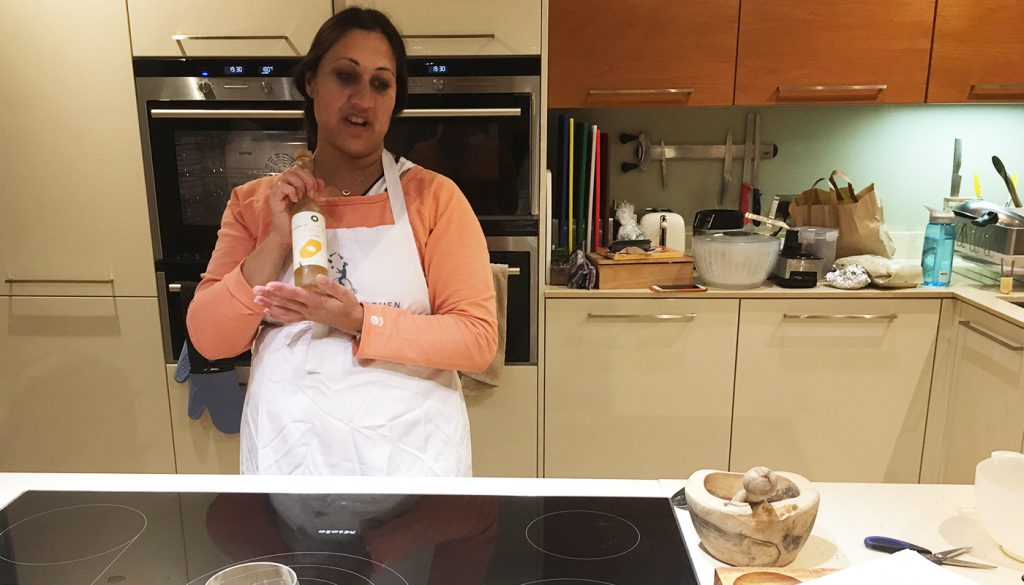
Toral talking about her favourite gut-healthy products
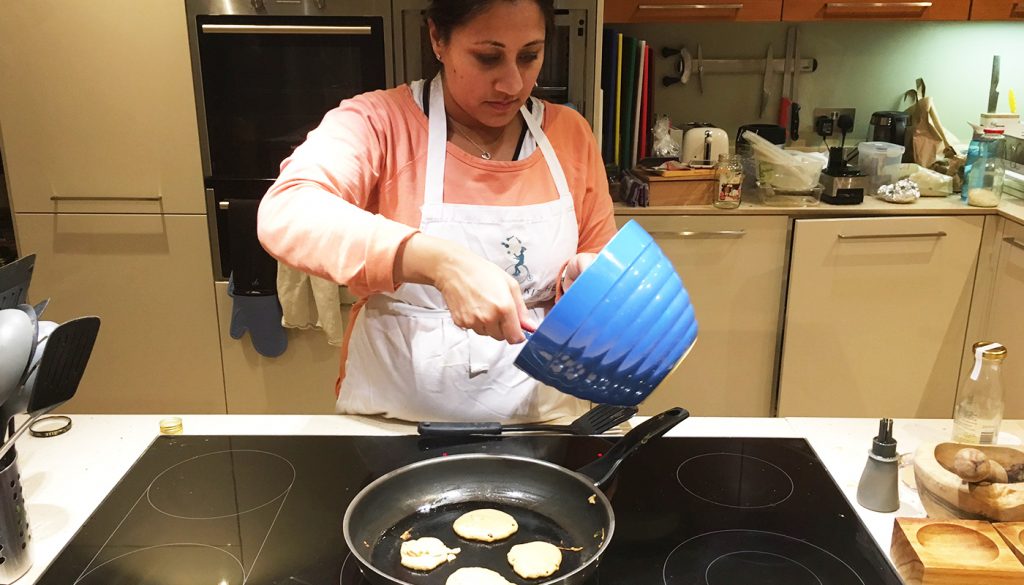
Toral demonstrating how to make the gut-healthy recipes
Toral is a wealth of knowledge, and we all had a lot of questions that we were dying to get answered. Why do we experience bloating after certain foods? Why does dairy give some people allergies and digestive problems? Should we be taking a probiotic or digestive enzymes? Toral explained that our gut microbiomes are so unique that even two twins would have a completely different species of bacteria living in their gut.
Any imbalance or lack of diversity in our gut microbiome could have a profound impact on our weight and health, and could even increase our risk of cancer, type 2 diabetes, irritable bowel cancer, allergies and inflammatory bowel disease. Toral encouraged us to increase the variety in our diets, especially the amount and types of vegetables we eat.
We tried a number of interesting ingredients and produce, such as ginger kefir, a fermented drink packed with gut-nourishing good bacteria, picked cucumber, smoked beetroot ketchup (my favourite) and smelled a huge range of different spices. Ask for any recipe ingredient, and Toral already has it. She really taught me to try and branch out with the food that I eat, to try things I’ve never tried before, because there’s a wealth of healthy ingredients that are mouthwateringly delicious. Healthy cooking doesn’t have to be boring, in fact, if you experiment with new vegetables, new flavours and alternatives to wheat-based foods, you’ll be eating your way towards a very healthy, happy and properly nourished digestive system.
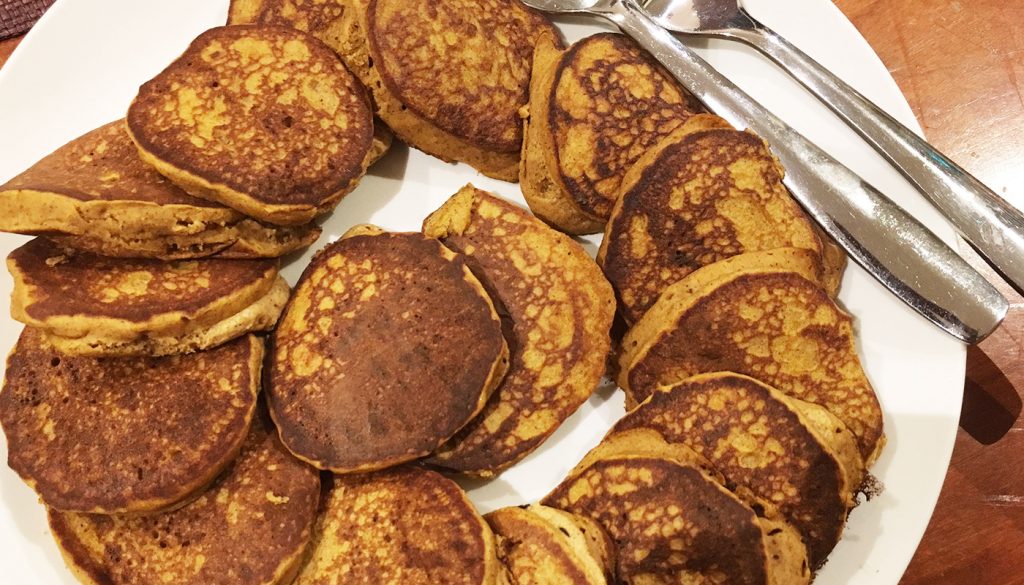
Delicious pumpkin & quinoa pancakes
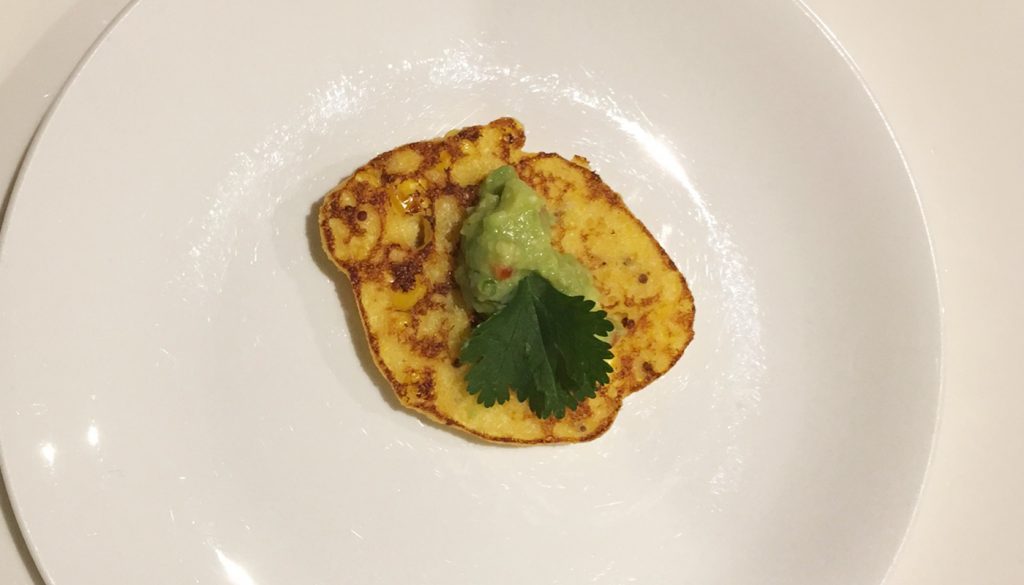
Corncake and avocado starter
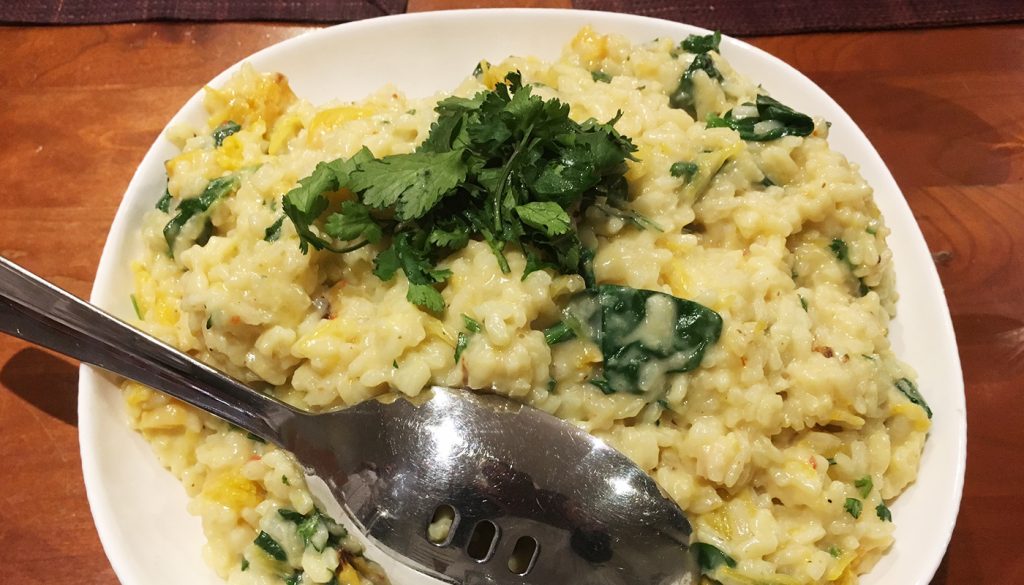
Gut-healthy pumpkin & saffron risotto
But for anyone already suffering from digestive problems such as bloating or IBS, how do we help nourish our gut when it is so disobedient all the time? Toral explained that the low FODMAP Diet has received significant attention in reducing symptoms of gut disorders. FODMAP stands for Fermentable Oligosaccharides, Disaccharides, Monosaccharides, and Polyols and describes foods that contain specific carbohydrates that are not always easily absorbed. We learned all about high FODMAP foods and why they can lead to signs of IBS, how to follow the Low FODMAP Diet safely, and my favourite part: how to cook a variety of healthy, vibrant and delicious foods to help nourish our guts and deal with any digestive issues.
We had such a fun time cooking up three delicious low FODMAP dishes to share, including marinated salmon with edamame, pickled cucumber and rice noodles, pumpkin and saffron risotto, and pumpkin quinoa pancakes with pecans. All of these recipes contain a huge range of nutrients, vitamins and gut-friendly enzymes, and won’t cause bloating, gas or digestive symptoms if you do suffer from digestive problems. You can find more of Toral’s recipes here.
If you are suffering from digestive symptoms and want to find out about the low FODMAP Diet, a registered dietitian, preferably one with experience of educating people on the low FODMAP diet will help you to follow it carefully. Ask your GP or gastroenterologist (gut specialist) to refer you to a registered dietitian who is trained in the low FODMAP approach. Alternatively, Toral Shah is available for one-to-one consultations.
To find out more about workshops by The Urban Kitchen or to book a consultation, visit her website, or follow her on Instagram and Facebook. Also, look out for her book on foods to prevent breast cancer which should be released next year.
Sarah is a Yoga teacher and founder of Luma Yoga, a writer and a health and fitness warrior. Alongside yoga, she is a natural beauty junkie, loves to travel, is obsessed with dogs and is currently taking dance lessons. Follow Sarah on Instagram and Facebook @sarahfretwellyoga or visit her website at www.lumayoga.co.uk
Love this information about the microbiome! This was my first time visiting your website. Good stuff! Keep it up!